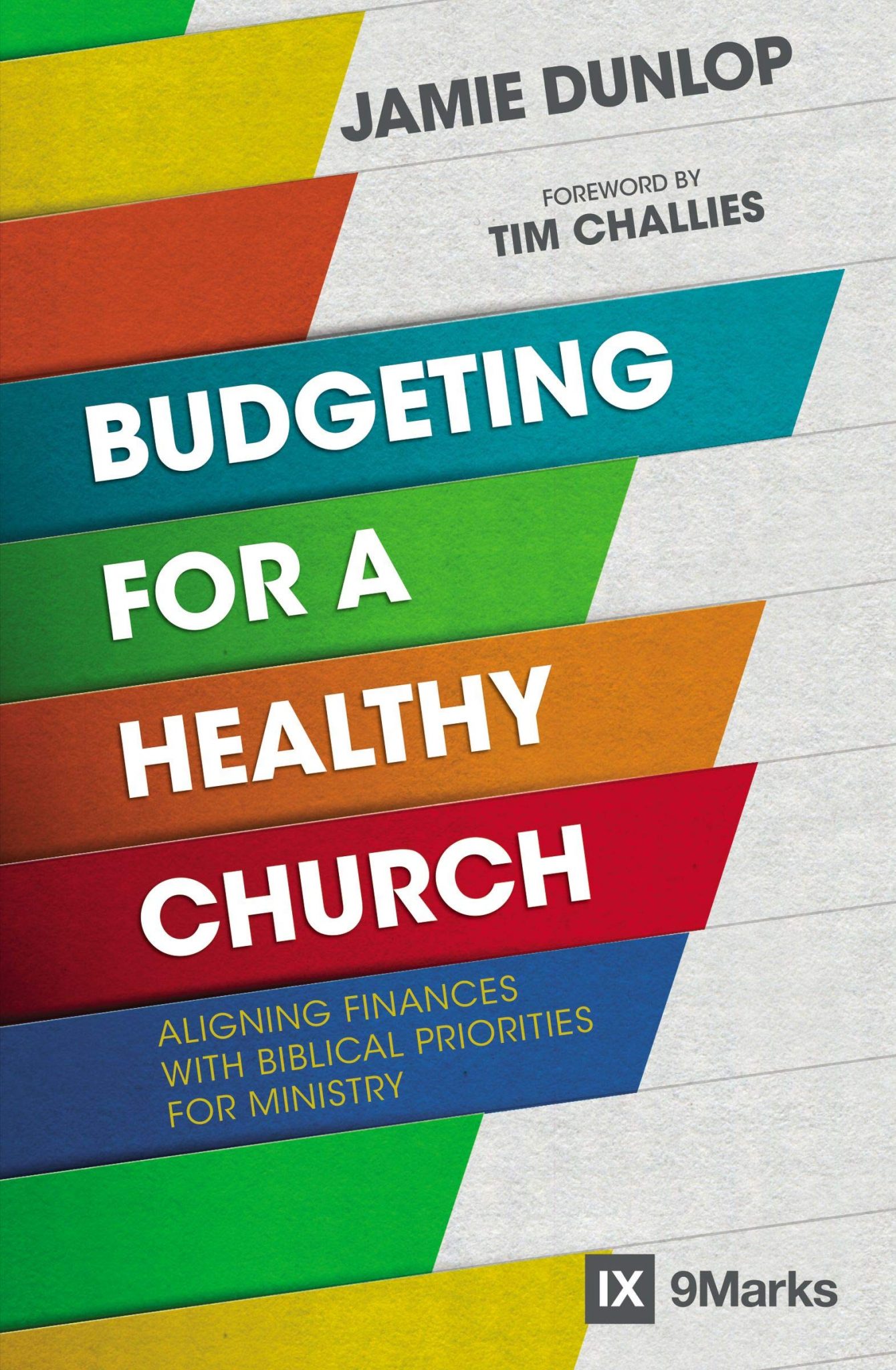I once heard a well-known Christian pastor say, “The business of the church is not the business of the church.” Since the mission of local churches isn’t to generate profits, congregations shouldn’t be distracted by the details of church finances.
Sadly, time revealed the leader’s refusal to share information about church finances was more about covering his irresponsible use of the Lord’s resources than it was about encouraging the flock to stay on mission. Eventually, the pastor was dismissed, the church was mired in financial controversy, and Christ’s reputation in the community was damaged.
This story is one reason church leaders should carefully read Jamie Dunlop’s excellent new book, Budgeting for a Healthy Church: Aligning Finances with Biblical Priorities for Ministry [20 quotes]. The business of the church—that is, the responsible stewardship of resources entrusted to a local congregation—is very much a responsibility of God’s people. Hence, local churches must make it a goal to align financial practices with biblical priorities, such that when Christ returns people are thankful for every dollar they entrusted to that congregation (33).

Budgeting for a Healthy Church: Aligning Finances with Biblical Priorities for Ministry
Jamie Dunlop
Budgeting for a Healthy Church: Aligning Finances with Biblical Priorities for Ministry
Jamie Dunlop
Many pastors conceive of the church budget as primarily a financial tool, but in fact it is primarily a pastoral tool. A church’s philosophy of ministry is locked into its budget, and so the budget will either stifle or accelerate any attempts to move a congregation toward a biblical model of church health. As such, the church budget is a far more potent pastoral tool than many church leaders realize. Budgeting for a Healthy Church examines each section of the budget in light of Biblical principles to show how a church budget can lock in healthy approaches to ministry.
Biblical Principles for . . . Parking Lots
Most churches don’t hide financial statements. More often they themselves are unsure how biblical principles should inform the budgeting process. Picture, for example, elders meeting about whether or not to invest in additional parking spaces. (By the way, if you haven’t priced a parking lot recently, pouring asphalt is not cheap.)
Elder 1: How can we justify spending $75,000 for 25 parking spaces? Do you know how far $75,000 can go in Myanmar?
Elder 2: Yes, $75,000 is a lot of money. But our average giving per attendee is about $2,000. If God uses the parking lot to eventually allow 60 more people to become part of our church, the parking lot would be a great investment of God’s resources.
Elder 1: I don’t know about the rest of you, but I’m not comfortable turning the stewardship of God’s resources into a “business.” We’re about gospel proclamation, not business propositions. And I’m not comfortable with estimating that the next 2-year-old who begins to come to our church with his parents is going to put $2,000 in the offering plate.
Elder 2: Of course, deciding whether or not to put in an additional parking lot at church isn’t simply a business decision. And we could choose to immediately give the money to missions. But the Lord Jesus directed us to leverage the assets given so as to multiply what has been entrusted to us.
Elder 3: Our people should just be willing to walk farther. And I have a hard time believing that adding a parking lot is that important. God, not parking lots, is the one who saves. We should leave this all up to the deacons anyway. We’re in charge of spiritual matters; they’re the ones responsible for church business.
Why does a parking-lot discussion so quickly become tense? Because church leaders are unsure who should lead and in what way. And of course, parking-lot arguments are tame compared to matters such as staff compensation.
Dunlop’s book ably shows how biblical truth is brought to bear on such budgetary decisions.
Financial Is Spiritual
Dunlop, an associate pastor at Capitol Hill Baptist Church in Washington, D.C., begins with the clear point that the administration of a church’s finances shouldn’t be seen as distinct from the spiritual life of the church. On the contrary, a church budget should be seen as a spiritual document (17). Indeed, “what a church treasures—how it spends money—reveals its heart, its values, and its priorities” (15). A focus on being found faithful with the use of its assets should inform every aspect of a church’s budget (33).
Given that the budget is a spiritual document, Dunlop rightly argues it’s the responsibility of a church’s elders to oversee the budgeting process. Indeed, elders should make a goal to plan for a more spiritually valuable budget over time (45). For instance, elders should take the lead in selecting outreach opportunities (116–17).
Budgeting for a Healthy Church also includes chapters on compensating staff, budgeting for programs, missions and outreach, and operations. Each chapter surveys the relevant biblical material and then applies clearly developed principles to church budgeting.
Even as Dunlop makes his case biblically, he offers practical worksheets and resources that church leaders can adapt for their own budgeting processes. (These resources are also offered for free at 9Marks.) Likewise, the budgeting checklist included in the final chapter is a useful tool to help churches be sure that they’re implementing what Dunlop’s book teaches (148–53).
Those who have worked in local-church leadership know it’s common for members to make a false distinction between spiritual and financial matters. Correcting that mindset isn’t an easy task. Budgeting for a Healthy Church is a wonderful resource that will meet this need. I’m asking our leaders to invest the time to read this short book. And I encourage other churches to do the same.




































